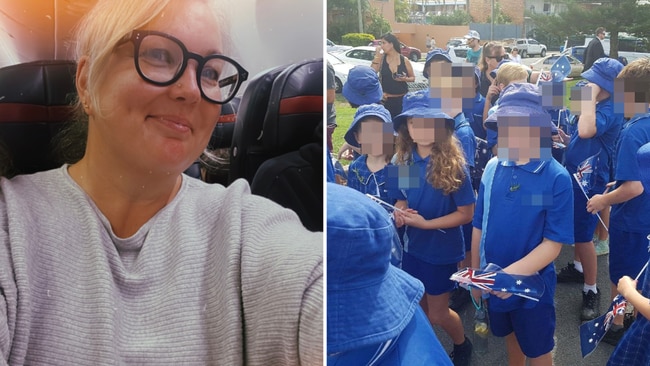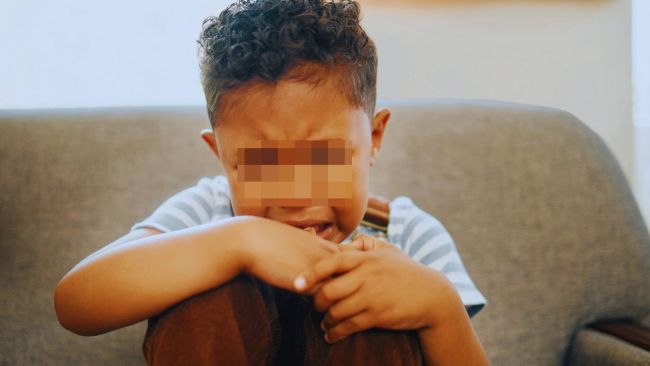Why letting kids opt out of ANZAC Day isn’t the threat some feel it is
"Teaching our kids to think critically is not the same as teaching them disrespect."

Parenting
Don't miss out on the headlines from Parenting. Followed categories will be added to My News.
A couple of weeks back, Sherwood Ridge Primary School in NSW made headlines for a quiet little note home - that blew up.
It announced that after consultation with the Department of Education, families can notify the school if they’d prefer their child not participate in the formal commemoration of Anzac Day.
According to reports, the school still plans to run the service, and has encouraged respectful engagement - but the option to opt out has divided opinion across social media, talkback radio and beyond.
Want to join the family? Sign up to our Kidspot newsletter for more stories like this.
RELATED: We can't let our kids opt out of Anzac Day. It's bloody unaustralian
I want them to understand why they’re standing there in the first place
Some critics see 'opting out' as a slippery slope, a failure to instil national pride, or even an act of disrespect to those who served.
Others argue it’s a thoughtful approach in an increasingly diverse and complex society, where families - for reasons religious, cultural, personal or political - may want to guide how their children engage with national narratives.
As a parent, I’ve been watching the conversation unfold with real interest.
Firstly, I’ll say this loud and clear: My family marks ANZAC Day, every year.
My kids have stood beside me at ANZAC services since they were old enough to carry their own sprig of rosemary.
We talk about war, sacrifice, mateship and peace. We talk about how lucky we are to live in a country where we can have these conversations freely. I want them to understand the weight of those words: Lest We Forget.
But I also want them to understand why they’re standing there in the first place.
If one of my kids came to me and said, “I don’t feel right about taking part in the service this year,” I’d ask why. I’d listen.
I’d want to know what they’re thinking and feeling, and I’d hope that I could support them through it - whether that led to a change of mind, or a choice to step aside.
Because choosing not to take part in a ceremony isn’t the same as not understanding its meaning.
Let’s be real - a classroom full of kids lined up in silence doesn't guarantee respect. What creates respect is understanding. Curiosity. Conversation. Giving young people the tools to explore history, ask big questions and form their own relationship with what it all means.
That’s not disrespectful. That’s critical thinking. And isn’t that what we want from the next generation?

RELATED: Sydney parents slam teacher's choice of punishment at school camp
These decisions aren’t political - they’re deeply personal
There’s a weird idea floating around that allowing kids to opt out of something like ANZAC Day is somehow dangerous. Like it's the first domino in the fall of society. But the truth is, kids opt out of things all the time. Religious services, sex ed classes, even Christmas concerts and Easter Hat parades.
And for some families, these decisions aren’t political - they’re deeply personal.
Some children come from families with faiths that don’t align with military commemoration. Some are navigating trauma. Some might have cultural or personal reasons that make standing in that assembly uncomfortable. And some are just trying to figure out how they feel about it all.
I believe in giving kids room to do that. Because that’s how they learn to be thoughtful adults - not by being told what to feel, but by being invited to feel something genuine.
And while we’re talking about history, it’s worth acknowledging that ANZAC Day isn’t the only story we need to tell.
Australian history is broad, deep, and - in parts - confronting. Our kids deserve to learn about all of it.
That includes the stories of our First Nations people. The oldest continuous culture in the world. It includes the truth of colonisation, of land taken, children taken and voices silenced. And it includes the often-overlooked stories of Aboriginal men who fought and died for this country - long before they were even counted as citizens.
We do our kids, and our country, a disservice if we leave those stories out. But all of this kind of learning has to be done with care. Not in a way that overwhelms or guilts kids, but in a way that gives them the full picture - respectfully, honestly and age-appropriately. Education, not indoctrination.
So no - I don’t think Sherwood Ridge has done the wrong thing by offering the choice. I think they’re trusting families to know what’s best for their kids.
They’re still holding the service. They’re still commemorating. But they’re doing it with a bit more awareness of the world we live in now - one where inclusion, dialogue and compassion actually strengthen national pride, not diminish it.
Because the legacy of the ANZACs isn’t just the stories we retell every April. It’s the values they stood for - freedom, fairness, mateship, courage. And I reckon giving kids a chance to explore those values in their own way is one of the most respectful things we can do.
So no, I’m not worried about kids opting out of an assembly.
I’m far more hopeful about the conversations that might come after.
Originally published as Why letting kids opt out of ANZAC Day isn’t the threat some feel it is



